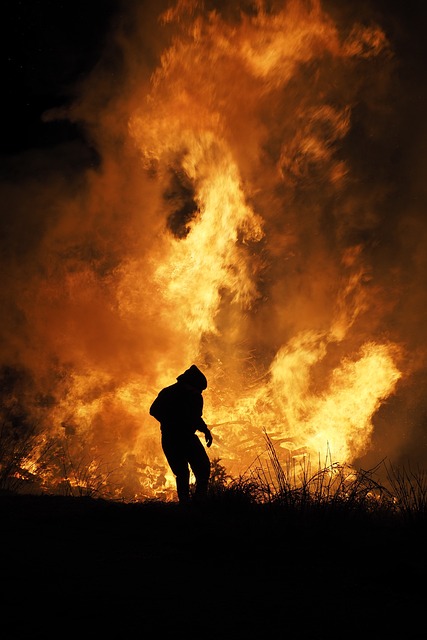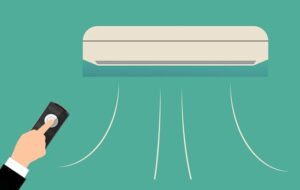Industrial unit heaters, including gas-fired, electric, and suspended models, are vital for efficient area heating in warehouses and manufacturing facilities, ensuring even temperature distribution and enhancing productivity. These versatile heaters offer flexible solutions with rapid response times, energy efficiency, and precise control, catering to diverse needs from space dimensions to fuel sources. Strategic placement and consideration of BTU ratings optimize working conditions, prioritizing safety and worker comfort across various industrial environments.
“Discover the power of rapid area heating with forced air industrial unit heaters—essential tools for optimizing diverse workplace environments. This comprehensive guide explores their role in efficiently raising temperatures, making them indispensable for industries from construction to manufacturing. We’ll delve into different types, from convection to fan-forced models, and factors to consider when choosing. Learn about best practices for applications ranging from warehouse heating to outdoor events, ensuring optimal performance and safety.”
- Understanding Industrial Unit Heaters: Their Role and Benefits
- Types of Forced Air Industrial Unit Heaters
- Factors to Consider When Choosing the Right Model
- Applications and Best Practices for Rapid Area Heating
Understanding Industrial Unit Heaters: Their Role and Benefits

Industrial unit heaters play a pivotal role in rapid area heating for various industrial applications, including warehouse heating and manufacturing facilities. These powerful heating solutions are designed to efficiently distribute heat across expansive spaces, making them indispensable for heavy-duty construction sites and commercial heating needs. By utilizing forced air heating techniques, they ensure even temperature distribution, eliminating hot spots and cold zones.
Gas fired heaters and electric unit heaters, both types of industrial unit heaters, offer significant benefits in terms of BTU ratings and energy efficiency. Suspended heaters, for instance, can be strategically positioned to cater to the unique heating requirements of different areas within a facility. This versatility makes them ideal for addressing specific challenges in manufacturing plants or large warehouses, where maintaining optimal temperatures is crucial for productivity and worker safety.
Types of Forced Air Industrial Unit Heaters

Industrial unit heaters are a versatile solution for rapid area heating in various industrial settings like manufacturing facilities and warehouses. These heaters come in different types, each designed to cater to specific heating needs. One common category is gas fired heaters, which offer efficient heating and are often preferred for their quick response times. They are suitable for large spaces due to their high BTU ratings, making them ideal for commercial heating applications.
Another type is electric unit heaters, known for their energy efficiency and ease of control. These heaters are particularly useful in areas requiring precise temperature regulation. Suspended heaters, another option, provide even heat distribution and are designed for heavy-duty construction, ensuring durability and reliability in demanding industrial applications. Forced air heating technology enhances their effectiveness, making them suitable for various environments, from warehouse heating to other commercial spaces.
Factors to Consider When Choosing the Right Model

When selecting an industrial unit heater for rapid area heating in warehouses or manufacturing facilities, several factors come into play. Firstly, consider the size and dimensions of the space to be heated; this will dictate the capacity and power output required from the heater. Secondly, the type of fuel source is a key decision – gas fired heaters offer efficiency and are popular choices for industrial applications, while electric unit heaters provide a cleaner, quieter alternative.
Additionally, suspension style heaters can ensure even heat distribution in large areas, making them ideal for commercial heating needs. BTU ratings should be evaluated based on the desired heating speed and scale of the space. Heavy-duty construction is essential to withstand demanding industrial environments. Remember, the right model will not only provide rapid heating but also contribute to energy efficiency and safety in various industrial applications.
Applications and Best Practices for Rapid Area Heating

In industrial settings, rapid area heating is essential for various applications, including warehouse heating and manufacturing facilities. Forced air industrial unit heaters are ideal solutions due to their efficiency and adaptability. These units can quickly raise the temperature in large, open spaces, ensuring optimal working conditions in commercial heating scenarios. The strategic placement of gas fired heaters or electric unit heaters, often suspended from ceilings, allows for even forced air heating across heavy duty construction sites and other industrial applications.
Best practices dictate considering factors like BTU ratings to match heating requirements with the right heater capacity. Suspended heaters are particularly effective in navigating labyrinthine manufacturing facilities, providing spotless and targeted warmth where needed. By implementing these strategies, businesses can enhance productivity and worker comfort in a variety of industrial settings, from bustling warehouses to sophisticated production floors.
Industrial unit heaters, with their forced air technology, offer a swift and efficient solution for rapid area heating in various industries. By understanding the different types and factors that influence selection, users can choose the optimal model to meet specific heating needs. These heaters prove indispensable in numerous applications, ensuring productivity and comfort without delays. Whether it’s a warehouse, construction site, or outdoor event, the right industrial unit heater can transform frigid spaces into comfortable environments in no time.













